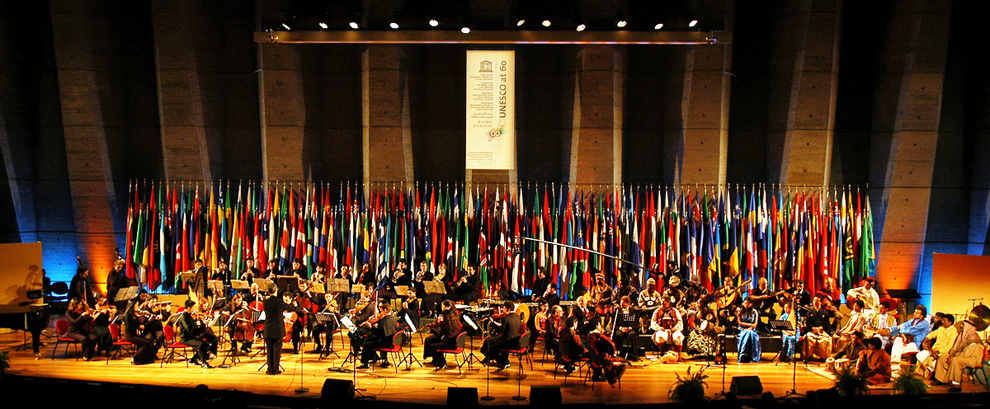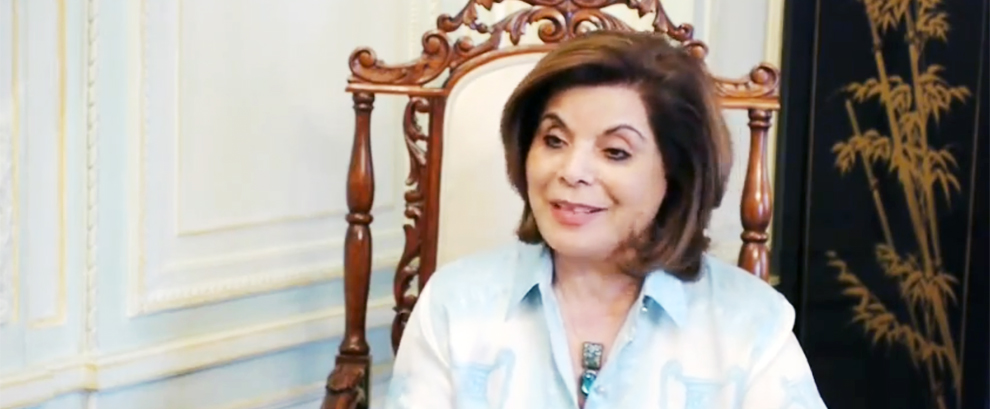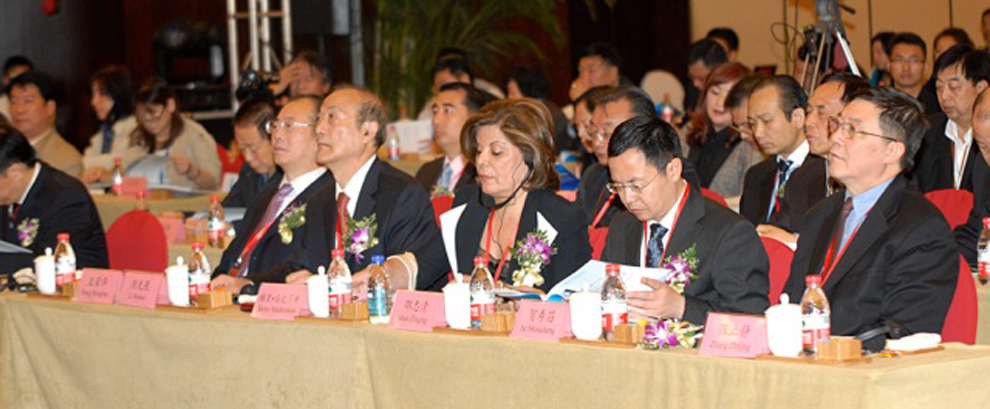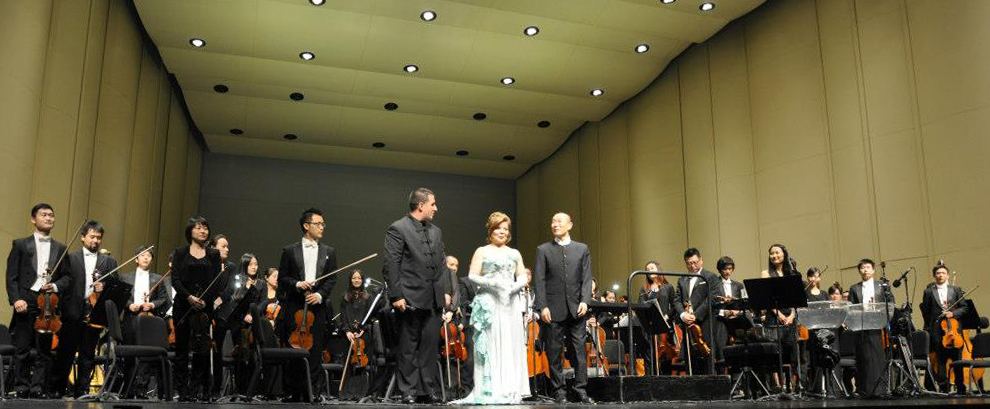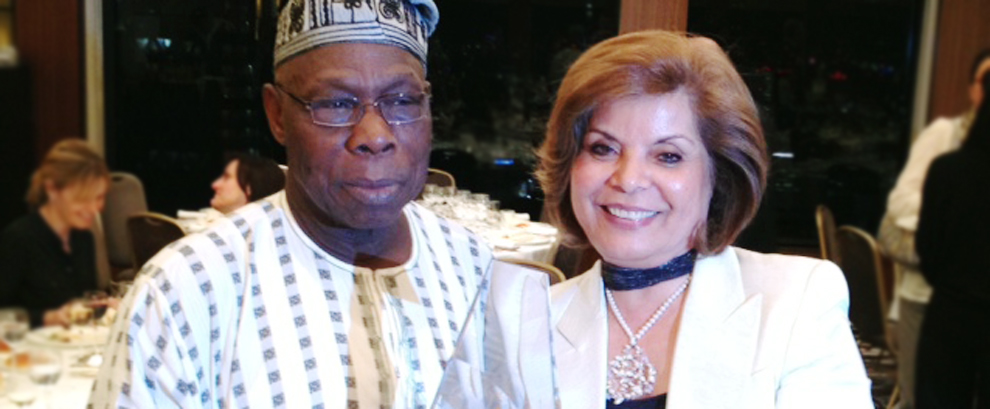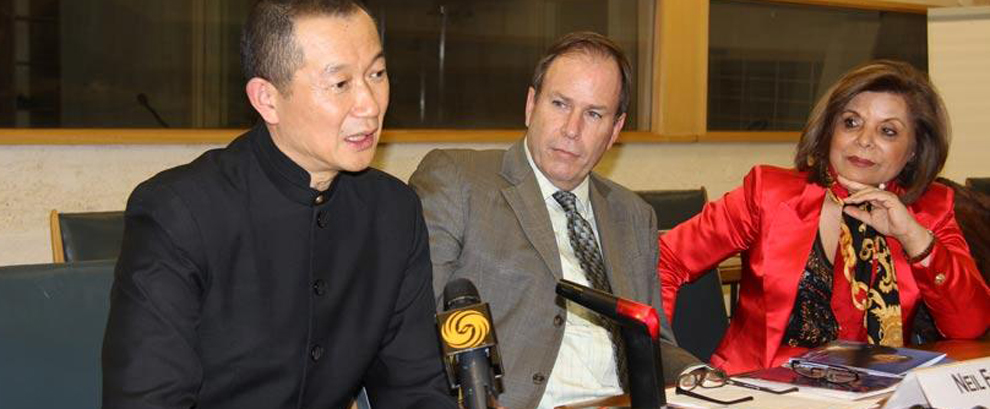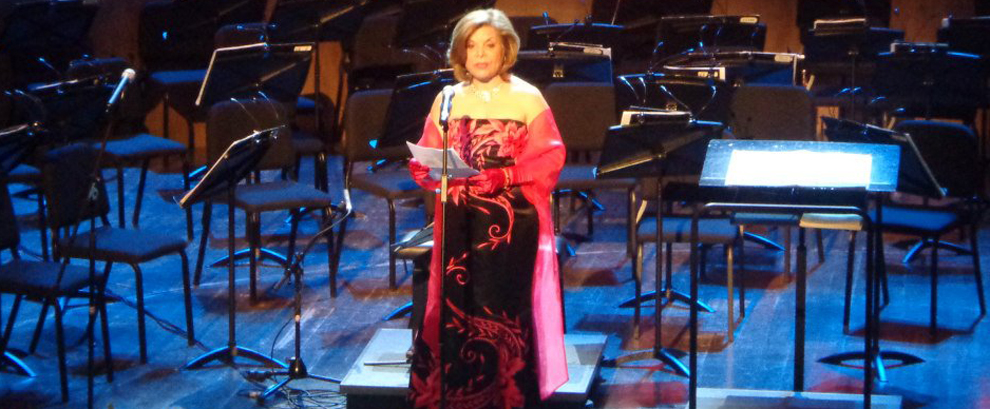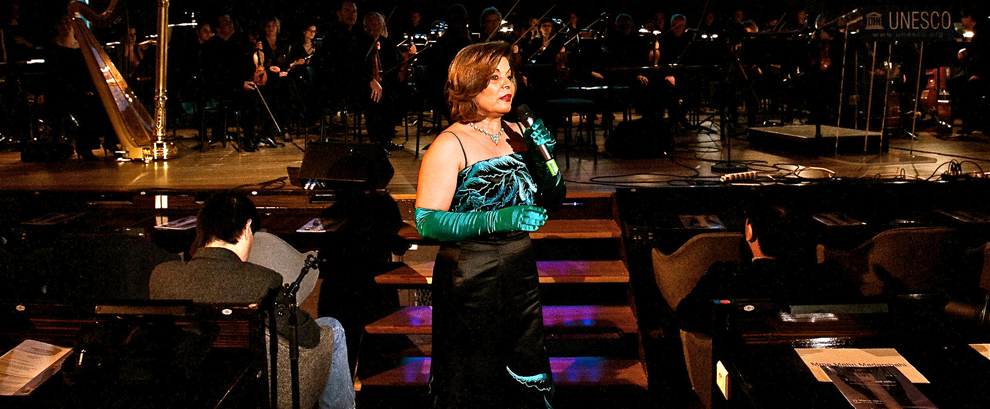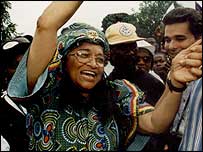
MaximsNews Network
By Mehri Madarshahi
Ellen Johnson-Sirleaf, the first democratically-elected female President in Africa, was inaugurated to the office in Monrovia on 16 January 2006.
This day coincided poignantly with the commemoration of the assassination of the beacon of the civil rights movement, Martin Luther King.
President Johnson-Sirleaf is a 67-year-old Harvard-educated economist and a seasoned politician with a stature she has honed since her days as finance minister under William Tolbert’s government.
After running afoul of military ruler Master-Sgt. Samuel Doe, she was forced into exile in late 1970s. During 20 years in the diaspora, she acquired a wealth of economic, financial, political and administrative skills while serving Equator Bank, the World Bank, Citibank inNairobi and UNDP in New York.
These progressively important jobs offered her the opportunity to prepare for elective politics, which she seized in 1997 for the first time upon her return to Liberia.
Her non-involvement in her country’s civil war and her financial expertise were the mainstay of her campaign message in 2005.
She endeavored to put across the image of an untainted, maternal figure ready to lead her people out of the abyss, with dedication, work and commitment to a new and promising future.
While the history of her opposition to the Doe government was well known, she had also served, albeit briefly, as a former minister in the Taylor government. When she ran against Taylor in presidential election, she scored 10 per cent of the votes, second-best after Taylor.
Having been charged with treason by Taylor, she was forced into yet another political exile limbo. In the turmoil of another chapter in the country’s civil war, between 2001and 2003 — which culminated with the ouster and exile of the odious Taylor — Johnson-Sirleaf remained firmly at the forefront of Liberian national politics.
And when she ran, for a second time for the office of President in 2005, she was declared winner after a disputed run-off with the football star George Weah.
She promised to install a government of national unity that would include her opponent, Weah. She declared in her inaugural speech to the nation that lacked basic services and suffered 14 years of a devastating civil war:
“Let us begin anew, moving forward into a future that is filled with hope and promise”.
In an interview which took place in Paris during her visit to UNESCO on the occasion of International Women’s Day, 8 March 2006, I asked the President:
“You are ruling a country which is ravaged by civil and proxy wars, infrastructures are in the state of ruin, the human capacity at its bare minimum and its accumulated debt is 50 times larger than its annual budget. How are you planning to deal with all these problems and where do you start”?
She responded without missing a beat:
“We need to get our Government machinery functioning. At present all of our institutions are dysfunctional, our financial system is in disarray, methods of adherence to the laws and procedures regarding all disciplines are non existent.
“We are trying to deal with these issues by getting very high profile individuals to assume the Governmental responsibilities. Of course the next step is to make sure we deal with human resource management issues and ensure that the schools and educational systems are running and people find work”.
At present, much of Liberia’s three million people are illiterate, hundreds of thousands live in relief camps and many of the educated class are living overseas.
I asked her about her strategy to attract the “high profile people” and how she expects them to join her Government.
She said, “a number of them with a great personal sacrifice have already come back and she is trying to make sure that programmes such as UNDP’s “Transfer of Knowledge through Expatriate Nationals (TOKTEN)” are fully used to assist with the repatriation process.
“It will take a while to create the critical mass needed by the country, but sometimes a visible progress can assist in attracting back most of those who left. In the past, the heavy exodus of talented and skilled individual from the country was mainly caused by absence of a proper governmental strategy.
“Today, however, they have much more opportunity and scope for offering those skills, its proper use and its management.”
I referred to the high unemployment rate, and asked to what extent it may interfere with her strategy of re-absorption?
She acknowledged the difficulties but she added that, “although, the present rate of unemployment is in and around 85 per cent, this includes all our returnees from the refugee camps. It is clear that absorbing and accommodating all these individuals will be very difficult, but we expect these people — upon return – to go back to their communities and be re-engaged in farming.
“At the same time, because of changes which we intent to introduce, we are hoping to engage most of the skilled and educated people in the Government strata at local and regional levels.
“One of the most sensitive tasks is to find a right balance for allocating these jobs among the warring factions, and diffusing tension.”
I sought further clarification of the progress made in the process of truce and reconciliation and she responded forthrightly:
“Well, many of rebels are ex-combatants who for the past few years and mainly for their lack of skills have decided to pick up guns. Our demobilizations plan will embrace many of them.
“They are required to learn the basic technical skills and trainings that could qualify them to join the ranks of the blue color workers. Those with schooling and experience have gone back to the governments jobs or are employed by the private sector.
“Some have reformed and do not like to be called ex-combatants any more. They have been well reintegrated in their communities.”
She then underlined with a steely determination,
“If anybody tries to be a rebel again, of course we will deal with them within the framework of law and order. The reconciliation process will create for everybody the opportunity to reform and be part of the society.
“In sum what we have to do is: 1. job creation, 2. financial and resources management, and 3. education.”
I asked about the role of the UN in the process of “integrating the ex-combatants”.
She replied “this is an on-going process. We have experienced a shortfall in funding which is mainly due to under-estimation of the number of beneficiaries.
“We are trying to underline the importance of mobilizing adequate resources to reach out to everybody and this has been the subject of my appeal to the UN community”.
In response to my subsequent question on what else she expects from the UN family, she referred without hesitation to the prolongation of the peace-keeping operation in her country.
She added that this “is essential until such time that the Liberian government could train adequate security service and restructure the basic infrastructure of the country”.
In 2003, the United Nations peacekeepers were sent to restore order after then-president Charles Taylor was indicted for war crimes and forced from office.
The UN, which still has about 1,600 troops on the ground, had increased security ahead of Johnson-Sirleaf’s inauguration. About 500 peacekeepers usually stationed outside the capital were moved to areas around the capital and the international airport.
She also expressed the hope and expectation that both economic and trade sanctions imposed by the UN would be lifted and she has in the past few weeks taken the first necessary steps in that direction.
Her visit in Paris also included a meeting with French President Chirac, at which this issue was addressed:
“Liberia is considered one of the world’s poorest countries, many even say outright it is the world’s poorest. The country currently owes an external debt of US$3.2 billion. With the nation’s current fiscal budget standing at US$ 83 million, it would take some 50 years to re-pay this staggering amount.
Politically, however, President Sirleaf-Johnson is trying to put into practice all she has preached to fellow Africans. She wants to instill an element of accountability in all aspects of Government activities, fight corruption. As she said “We got to do something about it”.
She is keenly aware of the high expectations of those who voted her into office.
“I’m humbled by the challenge. I will be under the microscope all the time: whatever I do and say, how well I am able to move the Liberian development agenda, how I am able to promote peace and reconciliation. I’ll have a lot of detractors who would want to see me fail, not only because of my long years of political activism in Liberia , but because they aren’t really convinced that women can be leaders.”
Responding to my final question on her message to women, she enthusiastically added:
“I am proud to be a woman!
“I am a technocrat, or a politician who happens to be a woman. I believe that there are certain attributes in a woman that give her some advantages over a man. Women are usually more honest, more sensitive to issues and bring a stronger sense of commitment and dedication to what they do. Maybe because they were mothers, and being a mother you have that special attention for the family, for the young, for children….
“I advise all women to follow their high objectives: Go for it! All in all I am glad I am a woman and I think in Liberia today, it is time for women to show what they can do.”
Speaking at UNESCO on 8 March 2006, she then translated this credo into a rousing keynote address, riveting her audience with what may well be the first “winds of change” speech of this century.
This time, the winds of change will usher in a new era in Africa and inspire women in the content and globally to aspire to decision-making positions, bringing peace, prosperity, integrity and happiness to their families, communities and nations.
She stated that women in decision-making positions will and can succeed if they set as well as maintain the standards of excellence which they ascribe to personally. They must also demonstrate clear commitment and respect for international norms and treaties which have evolved over the years and brought the concept and practice of equity and equality to the fore.
“In this regard women are under more societal pressure, scrutiny as well as obligation to protect and promote the human rights of women and girl children as an integral part of the universal human rights.”
In her view, women leaders will be “expected to demonstrate at all times a willingness to break with the past, a commitment to serve and a determination to never relent in pursuing truth, justice, good governance and the rule of law.
“Women have demonstrated considerable leadership at the family level, in the community and informal organizations, in high levels of international organizations, and are now boldly stepping up the highest mantle of state authority in public life.”
She thundered her conviction into the standing-room only hall at UNESCO that “with good guidance, commitment, dedication to change, with a vision that carries forward equality and social equity, women, through their leadership role, will help to make the world a safer, peaceful, more progressive place for themselves and their children.”
She assigned to Liberia the role of pace-setter in that regard.
“For sensitivity towards the needs of society, for being able to respond to those needs and to bring effective leadership, to bring prosperity, to bring integrity, to bring character, to bring to all of our people those wishes which they have dreamed of in all those years will become possible by promoting women to the highest level of state power.”
A powerful message by a powerful woman — with a staggering task.
One cannot help wonder whether she is not beginning to sound like and act like a newly-born “Iron Lady” of our times. She needs all our support, best wishes and admiration for her challenges ahead!


